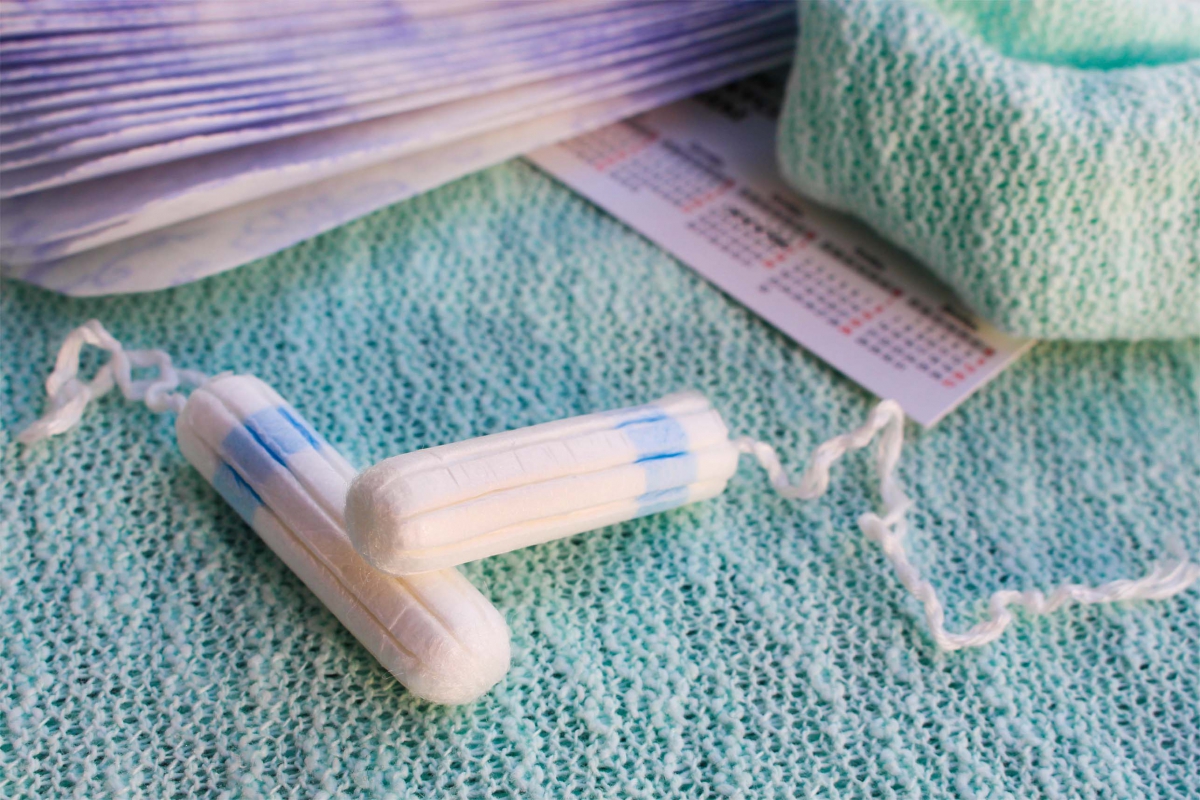The ‘tampon tax’ is a sales tax that states place on feminine hygiene products. Recently there has been a push for lawmakers to eliminate the sales tax on feminine hygiene products in states around the country.
Here in Michigan two Senators have committed to eliminating the sales and use tax on feminine hygiene products. Senators Rebekah Warren (D, Dist. 18) and David Knezek (D, Dist. 5) have introduced Senate Bills 91 and 92 that would eliminate the sales and use tax, respectively, on tampons, pads, and other products used for a woman’s menstrual cycle.  Both senators had attempted to pass similar bills in the 2015/2016 legislative session, but did not get much support in the Senate. The bills were sent to the Senate Finance Committee, but did not receive hearings before the session expired at the end of 2016. A few months into the new legislative session, the senators reintroduced their bills, and this time, they have gathered much more support, even from across the aisle.
Both senators had attempted to pass similar bills in the 2015/2016 legislative session, but did not get much support in the Senate. The bills were sent to the Senate Finance Committee, but did not receive hearings before the session expired at the end of 2016. A few months into the new legislative session, the senators reintroduced their bills, and this time, they have gathered much more support, even from across the aisle.
The Senate Finance Committee sent them to the full Senate in May with unanimous approval.
Across the country, currently, 13 states do not tax feminine hygiene products. New York, Illinois, Minnesota, Maryland, New Jersey, Massachusetts and Pennsylvania have repealed the sales tax on feminine hygiene products, while Oregon, Montana, Delaware, New Hampshire, and Alaska do not have a sales tax.
Michigan has a 6 percent sales tax on tangible goods. However, necessity items, such as food and medicines are exempt from that tax. Feminine hygiene products are not seen as necessity items to the state of Michigan. They are considered to be a luxury item, and due to being luxury items, are subject to the 6% sales tax.
The main argument against the tampon tax is that feminine hygiene products are not luxury items. Every woman knows that there is no choice when it comes to using tampons or pads. Feminine hygiene products should be considered a necessity item by the state, and be exempt from any sales tax.
A majority of women throughout the state and a significant number of men support eliminating the sales tax on feminine hygiene products. These individuals see the sales tax on these products as an unfair tax on women.. Proponents for the elimination of the tampon tax view feminine hygiene products on the same level as other medicinal items. Predominately male lawmakers have not experienced the necessity of feminine hygiene products, so they did not see the need to exempt them from a sales tax.
Opponents of the sales tax also see it as unfair to women in poverty. If a woman can barely afford to feed her family or make her monthly rent payments, she should not have to pay a sales tax on top of the regular price for products that help to control her menstrual cycle. If a woman is attempting to save money, she will try to use her tampons for longer than recommended and could very easily suffer from toxic shock.
The main opponent of repealing the sales tax on feminine hygiene products is the state itself. The tax income from these products can earn states millions of dollars each year. States are not going to want to willingly give up millions of tax dollars without a means to replace them. States continue to struggle to fund many of their social programs and cannot afford to lose revenue sources.
Looking to the future, it is hard to imagine that a majority of states will continue to tax feminine hygiene products. Over the past couple years there has been an unprecedented amount of momentum for a repeal of the tampon tax in states all over the country. There are already thirteen states that are not taxing feminine hygiene products, and many more currently have bills up for debate in their legislatures. For Michigan, there is still work to be done in order for this tax to be lifted. The bills have to be moved through the Senate Finance Committee, and then passed by the Senate as a whole. I’m confident that these bills will be passed through the Senate by the end of the 2017-2018 legislative session.
It is clear that the sales tax that is placed on feminine hygiene products should be repealed. These items are incredibly necessary for women, and the only reason they are not exempt from sales tax already is because male-dominated legislatures did not see the necessity to exempt them.
Sources:
Michigan Legislature. “Senate Bill 92.” Legislative.mi.gov. Published 1 Febuary 2017. Web. Accessed 16 March 2017.
Gray, Kathleen. “Michigan Dems Want to Put an End to Tampon Tax.” Freep.com. Published 4 Feb 2017. Web. Accessed 16 March 2017. http://www.freep.com/story/news/politics/2017/02/04/michigan-democrats-tampon-tax/97408306/
Shamus, Kristen J. “Michigan’s Tampon Tax and Why it Matters.” Freep.com. Published 19 March 2016. Web. Accessed 16 March 2017. http://www.freep.com/story/life/2016/03/19/michigan-tampon-tax/81896566/
Kutz, Eugene. “For Second Time Michigan Bill Seeks to Remove Tampon Tax.” Statenews.com. Published 9 Feb 2017. Web. Accessed 16 March 2017. http://statenews.com/article/2017/02/michigan-may-remove-rid-tampon-tax



